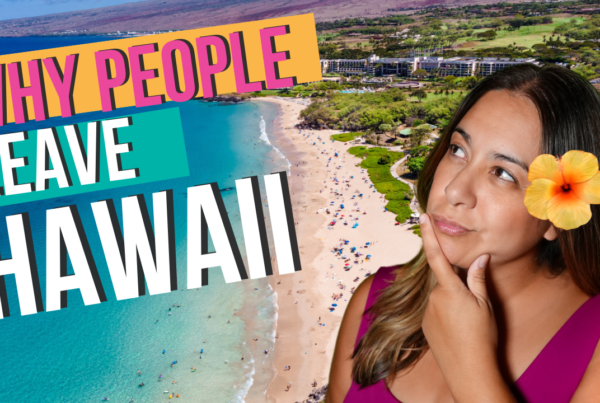In the past, Canadians have been at the top of foreign buyers for Hawaii real estate. So, although Canadians should know a few points about Hawaii real estate before buying here, it’s still fairly easy for a Canadian to buy their dream home or condo in Hawaii.
There are 10 things you should know before you start looking for your Hawaii home
If you can see yourself living the good life in Hawaii, and you are a foreign buyer that wants to buy property, here are some tips to get you started:
1. Is the Property Fee Simple or Leasehold?
In Hawaii, there are two types of property: fee simple or leasehold.
Fee simple is the term for property where you own the land and all the improvements on the land.
With leasehold property, you are paying for the improvements on the land, but do not own the land; instead you pay a lease on the land. If you are buying leasehold, you will want to know the terms of the lease. Also, it can be more difficult to obtain a loan on leasehold property as the loan needs to be for 5 years less than the time left on the lease.
2. Is This a “Distressed” Property?
In Hawaii, a large percentage of the properties for sale are distressed properties – either a short sale by the owner or a REO property. A short sale is a sale where the sales price is not enough to pay off the mortgage, so the transaction must be approved by the seller’s lien holder or lien holders. A REO is short for Real Estate Owned; this is property that has gone through the foreclosure process and is now owned by the bank. While there are many details to these transactions, the key points are:
Because you need lender approval, the process will take longer than a normal sale – expect anywhere from 2 to 6 months…and maybe even longer.
Distressed properties are almost always sold “as is” and often have been damaged and may have had appliances and fixtures removed.
The buyer will often pick up costs that a seller would “normally” pay, such as termite inspection, cleaning of property, and staking of property. The buyer may need to pay for liens on the house, back taxes, or HOA fees (monthly homeowner association fees). It is always best to know what these figures may be before you submit an offer.
3. A Seller Does Not Have to Repair Anything Before Selling
Unlike Canada, where a seller must bring a home up to code when selling, a seller does not have to repair a property before selling it. Hawaii law does require the seller to complete a seller’s disclosure on the property; however, any repairs paid for by the seller have to be negotiated into the sales contract, and in the case of distressed properties, the sale is usually “AS IS” where the seller will not perform any repairs, even those that may be considered a safety issue, but these are the types of homes you can often call a “steal of a deal.”
4. You’ll Need Your Finances in Order Before Writing Up An Offer
In Hawaii, it is common practice that all offers to buy include documentatio




